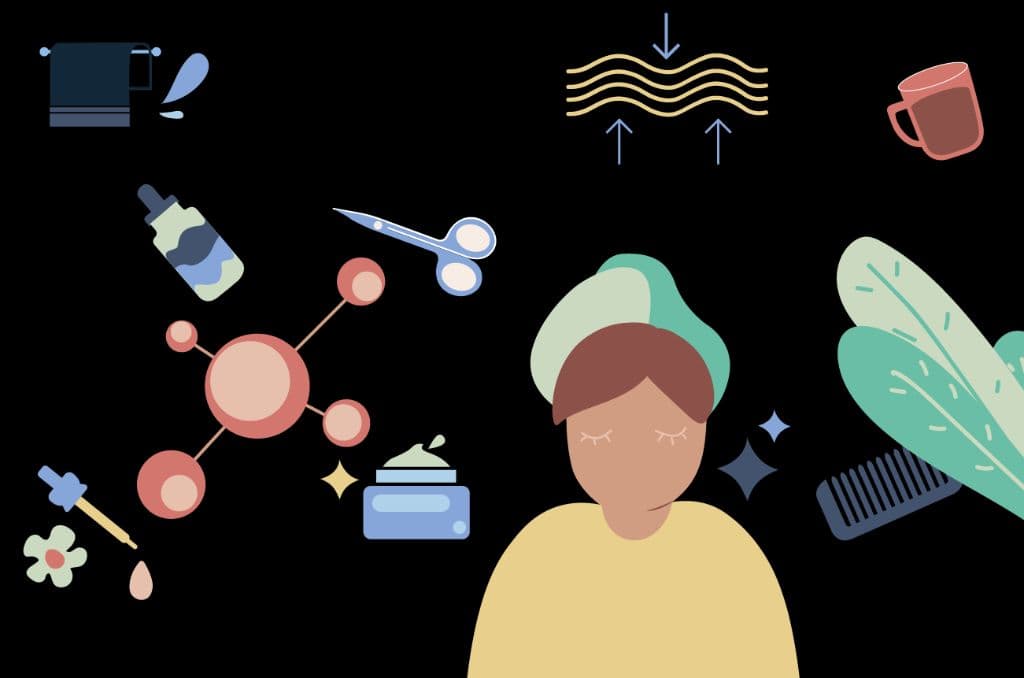All of us long to be comfortable in our own skin. However, when the skin itches, hurts, flakes, breaks out, changes color, or just doesn’t look or feel the way you’d like it to, it can be a simple skin infection or disease, or a sign of something else.
Diabetes can affect every part of the body, including the skin. Some of these problems are skin infections anyone can have, but people with diabetes get more easily. The good news is, most of these skin conditions can be prevented or easily treated if caught early. All it needs is maintaining blood glucose control, regular skincare and monitoring and a few simple tips.
Persons with diabetes can generally be affected with the following kinds of skin disorders:
- Fungal & bacterial infections
- Specific skin changes
- Nail and hair changes
- Fungal infections are one of the most common skin conditions affecting diabetics.
Candidiasis
Candidiasis is a fungal infection caused by a yeast called Candida. Higher levels of glucose in the blood make the moist skin folds more prone to infection by Candida, so diabetics who have difficulty controlling their blood sugar may find themselves particularly prone to recurrent yeast infections.
Ringworm
Ringworm is a rash caused by a fungal infection. Ringworm gets its name because of its appearance. No worm is involved. It is characterised by a scaly ring-shaped rash, with clearer skin in the middle. It is intensely itchy and typically occurs on the buttocks, trunk, and groin folds. These generally require oral medication prescribed by a skin specialist.
Bacterial infections
There are different kinds of bacterial infections. These include styes, which are infections of the glands of the eyelids; folliculitis, which are infections of the hair follicles; carbuncles, which are deeper infections of the skin and the underlying tissue, and infections of the skin around the finger and toenail folds.
Most bacterial infections require treatment with antibiotics prescribed by a skin specialist.
Cellulitis
Cellulitis is usually caused by a bacterial infection in the deep layers of skin and the layers of fat and tissue beneath. Symptoms include painful, red, swollen skin and fever. Cuts and cracks on the soles can often lead to cellulitis of the leg in diabetics if not treated promptly.
Diabetic blisters
In rare cases, people with diabetes develop blisters that resemble burn blisters. These blisters can occur on the fingers, hands, toes, feet, or forearms.
Diabetic blisters usually are painless and heal on their own. They often occur in people who have diabetic neuropathy.
Diabetic dermopathy
Diabetes can affect the small blood vessels (micro vasculature) of the body that supply the skin with blood. Changes to the blood vessels because of diabetes can cause a skin condition called diabetic dermopathy.
These are characterised by light brown, scaly patches of skin, often occurring on the shins. A higher incidence of this condition is seen in diabetics who also have retinopathy, neuropathy, or kidney disease.
Sclerosis
Sclerosis is a condition in which the skin on your toes, fingers, and hands become thin and hard. Stiffness of the finger joints also might occur. Lotions and moisturizers might help soften the skin.
Acanthosis nigricans (AN)
Acanthosis nigricans is a skin condition in which areas of velvety skin are seen on include the neck, groin, armpits, elbows and knees. This condition typically affects people who are obese and generally in Type 2 diabetes. It sometimes goes away when a person loses weight.
Neuropathy
Diabetic neuropathy is damage of the nerves that’s caused by diabetes. The high content of blood sugar in the blood of a person with diabetes damages the blood vessels that supply the nerves over time. Symptoms include pain and numbness in the extremities especially the legs, feet, and toes as well as the hands. The treatment includes treatment of nerve pain and regularly checking the feet to make sure they are free of injury, wounds, or infection. People with diabetes who have to take insulin injections on a daily basis, are prone to reactions at the injection sites, and skin infections as well.
Care to be taken
The three most important things to keep in mind for care of diabetics are: Exercise, nutrition and medication.
Committing to a better diet and daily exercise promotes better blood sugar levels, blood lipid control, and mood. It also leads to higher energy levels, which makes it easier to exercise.
- Avoid long hot showers, keep your baths short.
- Moisturise immediately as soon as you come out of the shower, while skin is moist. Moisturise several times a day.
- Use of coconut oil is advised as it seals in the moisture.
- Avoid excess soap. Use a mild soap to clean the body folds and avoid soap on the drier parts.
- After a bath, it is advised to do a full body self examination. Check between the toes for cuts, corns, blisters, and skin fold infections.
- Keep the folds of the skin dry, use a talcum powder in these areas if needed.
- Try using cotton innerwear
- In the dry and winter season, a humidifier in the room at night can help your skin.
- Never pop your boils, especially if you are diabetic.
- Ask your health care provider to recommend an antibiotic cream or ointment for minor cuts.
- Keep a first-aid kit handy to take care of minor injuries.
- Visit your dentist regularly as diabetics have a tendency for cavities and oral infections
- Hair care: Hair can become dry and lackluster for people with diabetes. Use a conditioner or oil your hair just prior to shampooing.
- Keep the nails trim to avoid infections.Drink lots of fluids to keep your skin moist and healthy.
Contact your doctor if you experience any of the following problems:
- A major cut, burn, or infection
- A skin change or problem that doesn't go away
- A rash that develops after taking medication
- A rash that develops near your insulin injection site
Disclaimer : This information is provided for educational purposes and should not be construed as medical advice. Please consult with your healthcare practitioners before undertaking any changes in your diet or adding supplements.
ProactiveForHer is a digital clinic for women, offering accessible, personalized, and confidential health-care solutions. We offer products and services for out-patient health concerns of Indian women, across their lifetime - from puberty to pregnancy to menopause. To know more on the sexual and reproductive health of women, visit https://www.proactiveforher.com/

